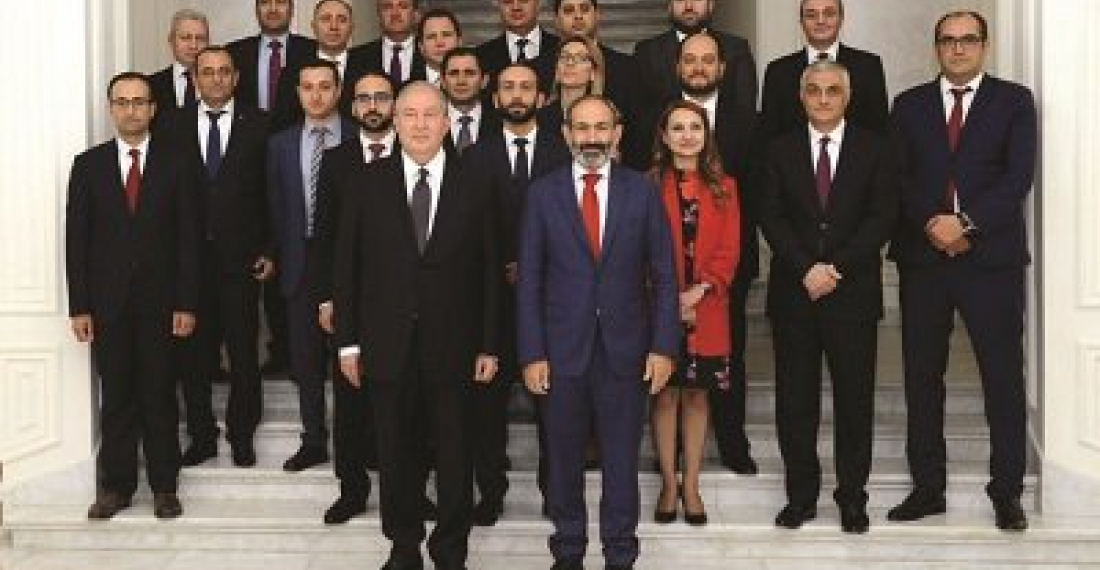Protection of Armenia's sovereignty, ensuring of the security of Armenia and Nagorno-Karabakh, and raising the international standing of Armenia are the key highlights on foreign policy in the programme that the new Armenian government presented on Thursday (7 June) for the approval of parliament
The programme states that the new government will make efforts toward achieving resolution to the Karabakh conflict only through peaceful means, and within the format of the OSCE Minsk Group co-chairs, and based especially on the principle of equality and right to self-determination of peoples. The programme says that the new Armenian government reaffirms that Nagorno-Karabakh is a party to this conflict, shall have a decisive say and engagement in the peace process.
The new government will make efforts toward making Armenia's membership in the Eurasian Economic Union and the Collective Security Treaty Organization more productive. The new government will work towards developing its strategic and allied relations with Russia and boosting its friendly partnership with the United States. In addition, the new government will make efforts toward starting a negotiations with the European Union (EU), on the implementation of the Armenia-EU Comprehensive and Enhanced Partnership Agreement and to achieve EU visa liberalization for Armenian citizens. The programme states that deepening of cooperation with European countries is an important direction of the foreign policy of the new government of Armenia.
On military issues, the programme says there is a need to raise the level of combat capability of the Armenian Armed Forces with the necessary armaments, the replenishment of military equipment and material and technical means. It highlights the need to introduce modern military management and establish new criteria for increasing the combat skills of personnel.
The programme calls for the strict exclusion of any influence by the armed forces in the political and electoral processes in the country. A member of the armed forces, be it a soldier or a general, should be able to express their will in the elections as a free citizen of the Republic of Armenia, it says.
The programme is expected to be discussed by the parliament. If the programme is not adopted by parliament new elections will have to be held as soon as possible.
source: commonspace.eu with agencies
photo: The new Armenian government with president Armen Sarkissian, at their swearing in ceremony in May 2018






